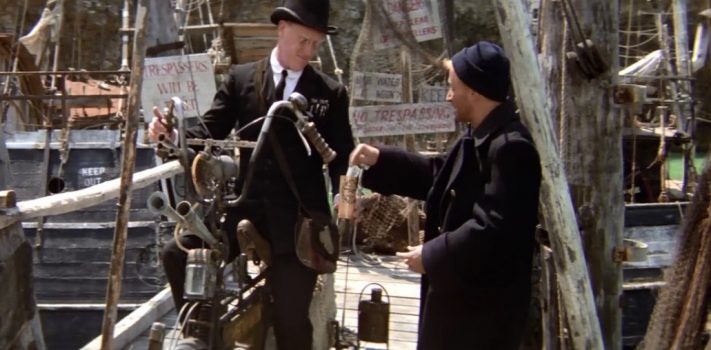JWR’s Introductory Note: This is an update and expansion to an article that I wrote for SurvivalBlog back in 2005. In the interim since I wrote it, many states including Arkansas, California, Connecticut, Indiana, Iowa, Kansas, Louisiana, Maine, Maryland, Massachusetts, New Jersey, New Mexico, South Carolina, and South Dakota have raised their sales tax rates.
—
Comparing taxes is important when choosing your retreat locale. If you are low-income, but fairly self-sufficient, then sales taxes and vehicle registration costs will be important to you. But if you have a high income, then incomes taxes will be more important to you. If you invest in classic cars, then perhaps vehicle registration cost is the most important to you.
Sales tax is an important issue if you are setting up a retreat. The process of building a retreat generally entails buying a lot of “big ticket” items, such as an AC/DC power generator, photovoltaics, tractors, four-wheel-drive vehicles, guns, ammunition, storage food, gun vaults, wood stoves, propane tanks, propane appliances, and so forth. Sales tax can be minimized if you buy via mail order, but that creates a paper trail, which in my opinion should be avoided. Often, you can travel to an adjoining state with low sales tax (or no sales tax) to make major purchases.
Keep a low profile when making major purchases–especially ammunition. Pay with cash and don’t leave your name or phone number.
Sales taxes can vary from county to county, but here are some basic tax rate figures, by state (or territory):
NO Sales Tax:
Alaska, Delaware, Montana, New Hampshire, and Oregon.
Very Low Sales Tax (4% or less):
Georgia, Colorado (substantially higher in some cities/counties), Hawaii, New York, and Wyoming.
Low Sales Tax (4.1% to 5%):
Louisiana, Missouri, North Dakota, Oklahoma, South Dakota, Utah, Virginia, and Wisconsin.
Moderate Sales tax (5.1% to 6%):
Arizona, District of Columbia, Florida, Idaho, Iowa, Kentucky, Maine, Maryland, Michigan, Nebraska, New Mexico, Ohio, Pennsylvania, South Carolina, Vermont, and West Virginia.
High Sales tax (6.1% to 6.5%):
Arkansas, Indiana, Illinois, Kansas, Massachusetts, Minnesota, Mississippi, North Carolina (when 2%+ county taxes are considered), Texas, and Washington.
Severe Sales tax (6.6% or higher):
Alabama (when county tax add-ons are considered), California, Connecticut, Nevada, New Jersey, Puerto Rico, Rhode Island, and Tennessee.
Income Taxes
Another key differentiator is state income tax. Take note that Alaska, Florida, Nevada, South Dakota, Texas, Washington, and Wyoming do not levy state income taxes. Furthermore, New Hampshire and Tennessee don’t tax earned wages but they do tax some dividends and interest income.
California, Oregon, and Minnesota have the highest income tax rates in the country.
Now take a quick look back at the list of sales taxes. Notice a correlation? Most states get their “pound of flesh” one way or the other. Generally, states that have a low sales tax have a high income tax, or vice versa. But Florida, Iowa, and Montana seem to make up the difference with more expensive car registration fees. The exceptions seem to be states like Alaska and Wyoming that benefit from high tax revenue from energy producers.
South Dakota is a bit odd, so it bears special mention. It has no personal income tax but yet it has a low sales tax. Their car registration fees are also fairly low. They’ve found their niche by catering to Perpetual Travelers (Van Lifers and RVers) who declare South Dakota as their state of residence, but only rarely visit there. There are a lot of businesses in South Dakota that do mail forwarding for ex-pats and the RV crowd. You can establish legal “residency” in South Dakota by presenting a receipt for lodging for just one night at a motel.
The other exception is Califonia, which has both a severe sales tax and a high income tax! So “Commiefornia” is exceptionally bad.
The State Line Jumping Game
Many folks have discovered how to play the state line jumping game: Living near a state line to take advantage of lower taxes in one or more adjoining states.
For example, you can live in the Idaho panhandle (very low property tax, car registration, and car insurance), make your day-to-day purchases in Idaho (6% sales tax) but make your major purchases in Montana or Oregon–both of which have no sales tax.
Note: Many states assess a sales tax when you return to register a vehicle that you purchased out of state. This can often be avoided legally by keeping it registered out of state for at least one year before taking it back to your high tax state.
Another possibility is to live and work in southern Washington (no income tax and fairly low property taxes), but shop in Oregon—where there is a high property tax but no sales tax.
For Further Research
For detailed information on the tax rates in various states, see:
- State income tax rates.
- State sales tax rates.
- State property tax rates.
- Car registration fees, by state.
- States with estate or inheritance taxes.
A Nanny, or Not
There is an underlying issue that needs to be addressed: the scale of government in each state. Some states have big, pretentious, intrusive governments that love to get involved in every aspect of your life. The bigger the government, the higher their taxes, fines, and “user fees”. There are also many taxes, fees, and mandatory insurance requirements that are charged to businesses that end up getting passed along to customers. One of the largest of these is Worker’s Compensation Insurance. My advice is to avoid living in any of these Nanny States. As time goes on, they are only going to get worse.
The bottom line: If you live in a state with severe taxes, then vote with your feet! – JWR










